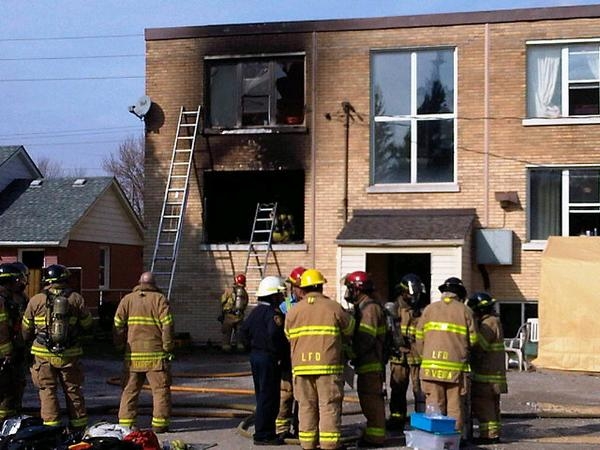Group homes for vulnerable people in Ontario are a step closer to having a standardized set of regulations.

A private member’s bill from New Democrat MPP Cindy Forster of Welland passed second reading on Thursday at Queen’s Park.
Forster specifically mentioned London resident David MacPherson, 72, who died in a blaze at an unregulated group home on Oxford Street East in November of 2014.
The death of MacPherson pushed the city to join other municipalities in introducing a bylaw on group homes in 2016, but the province as a whole has no such legislation.
The bill calls for licensing and minimum standards for the homes like the one MacPherson died in, which often house people with mental health or developmental conditions.
READ MORE: London group home operator Keith Charles sentenced to intermittent jail, probation
Jeff Schlemmer of Neighbourhood Legal Services London and Middlesex was surprised to learn there weren’t any standard regulations in Ontario before the fatal blaze in London.
“When the fire happened a few years ago when Mr. MacPherson was killed, I started looking in to try to find out, sort of, what are the laws that regulate these kinds of places, and I was surprised to find that there really weren’t any,” he said.
“I don’t know why it’s taken this long for someone to get around to doing that. You would think that those same standards should apply across the province.”
Schlemmer added that London’s bylaw would serve as a good template for provincial legislation.
“It requires things like 24/7 attendance of a worker on site, a qualified social worker on site. Sets standards for nutrition, for example, minimum standards for nutrition. Requires, basically, that the city can come in and do inspections on a regular basis and generally, as you would expect, requires that building and fire code requirements be kept up to date.”
READ MORE: Ontario to improve levels of care for youth in group homes, CAS custody
While he applauded Forster’s bill, Schlemmer added that more will need to be done to help these tenants, who often have some kind of mental illness, developmental disability, or behaviour disorder that makes it impractical for them to care for themselves.
“If we bring in these standards, that’s great, but most of those folks are on Ontario disability benefits which provide for shelter component, which pays their rent, and a basic needs allowance, which pays for their food, but there’s no component in there for care.”
The bill, which received support from all three political parties, now goes to committee for consideration and amendments.
- Alberta to overhaul municipal rules to include sweeping new powers, municipal political parties
- Canada, U.S., U.K. lay additional sanctions on Iran over attack on Israel
- Trudeau says ‘good luck’ to Saskatchewan premier in carbon price spat
- No more ‘bonjour-hi’? Montreal mayor calls for French only greetings








Comments